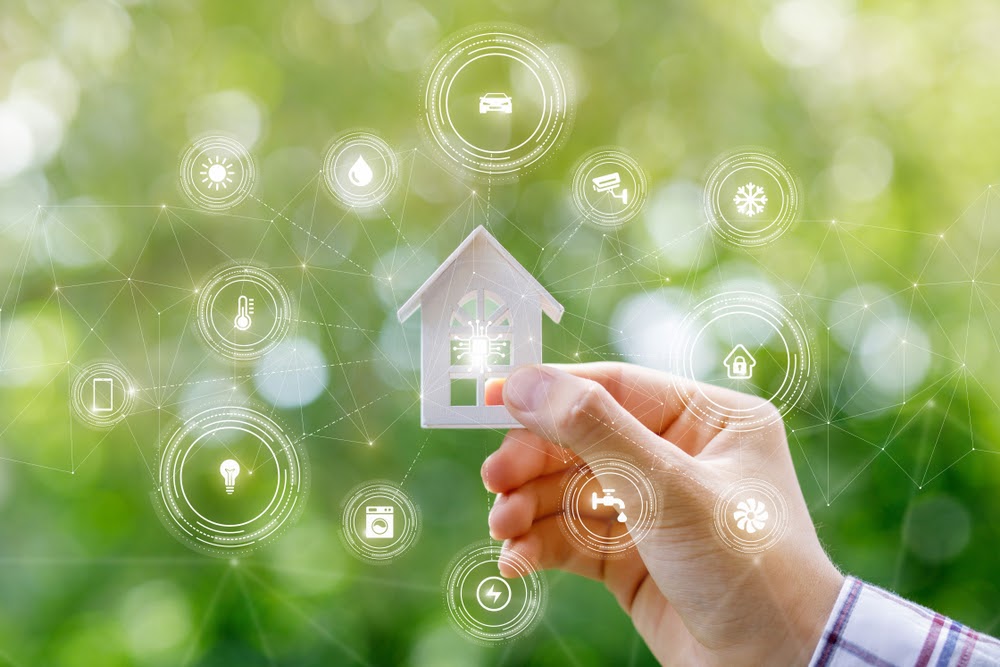Talking to Clients about Energy Efficiency
Some clients might overlook energy-efficiency features when touring a potential new home. Often, clients have their own ‘must have’ list in mind for their dream home. REALTORS® might know that these mental lists could be deal breakers.
While floor plans, lot size, location and even kitchen or bathroom features could rank high on a buyer’s mental checklist for their new home, energy-saving features might not even be on their radar. However, energy-efficient features could save homeowners money each month. Green homes might be the new trend to watch. Here’s how to talk to clients about energy efficiency and elevate these money-saving amenities in new homes.
What is Energy-Efficiency?
ENERGY STAR defines energy efficiency as “…using less energy to get the same job done.” Some homes could feature energy-efficient appliances or maybe even more unique features like solar panels. Cutting down energy use might save homeowners money each month.
Homes that offer numerous energy-efficient options could mean that electricity or gas bills might be lower than expected. Homes that use solar power might be able to just say no to electricity!
There could be hidden energy-efficient features, too. These features could be overlooked by homeowners, who may be more focused on that mental list of ‘must-haves.’ Hidden features that could help save energy and dollars include:
- Low flow showerheads and faucets
- High-end insulation
- Energy-efficient windows
- Energy-efficient HVAC
Appliances Add Up
Some homeowners might include certain appliances in the sale of their home. Others, though, might take a few appliances with them to their new home. Buyers, though, also could negotiate with the seller to try to keep specific items in the home, including appliances.
If appliances are energy-efficient models, these upgraded features also could help the buyer save money on future energy costs. When walking through a home, it might be a good idea for interested buyers to hone in on the appliances. When making an offer, they might try to negotiate to keep these items.
However, as REALTORS know, sometimes these negotiations work out…other times they do not. Some sellers, though, might even offer up those appliances if the deal is right.
Energy-Efficient Appliances & Upgrades
On the flipside of the deal, homeowners who are selling their homes might consider highlighting any energy-efficient upgrades in their home. Again, high-efficiency HVACs, microwaves, low-flow toilets or other fixtures could be selling points.
Any upgrade that adds to the energy-efficiency of the home might help catch the eye of a buyer. REALTORS also might want to ask sellers about any new insulation upgrades and windows, too. Solar panels and geothermal heating also are worth noting in the home’s listing description.
Homes also can include certifications and/or designations like ENERGY STAR or Leadership in Energy and Environmental Design (LEED). Each program has its own standards.
Energy Efficiency Considerations for a New Home
Homeowners who are about to move into a new home might be interested in creating a more energy-efficient space. Even if there isn’t a budget for upgrading current appliances or making big changes, homeowners can make changes to improve the energy use of their homes…and save money, too!
Upgrading Appliances
Most homeowners are not going to purchase or upgrade appliances on a whim. Refrigerators, washers/dryers and HVAC units are expensive investments. However, when an appliance or fixture needs to be replaced or when the previous homeowner has taken some of those appliances to their new residence, homeowners can price out the cost of an energy-efficient model. These upgraded appliances can help homeowners save money over time.
Savings can vary per appliance type and location, too.
Refrigerator
ENERGY STAR provides a tool that helps homeowners estimate their savings when upgrading to a new ENERGY STAR model. Fun fact: homeowners might save energy (and maybe money, too) with their current model by making sure that the coils stay clean. How much energy does a refrigerator use each month? According to Silicon Valley Power (in Santa Clara, Calif.), a 15 cubic unit fridge uses more than $12 in electricity a month, but a 17 cubic unit ENERGY STAR refrigerator only costs $4.55 per month.
HVAC
The heating and cooling systems within the home suck up the most energy use in the home; the HVAC represents nearly half of the energy use of the home. According to Direct Energy, air conditioners last about 12 to 15 years, while the furnace could last two decades. Replacing these systems, though, is expensive. However, if the system has lived its life or if homeowners anticipate that a home’s system is near the end of its life, an energy-efficient investment could be a smart investment in the future. Homeowners also should research any available rebates.
Washer & Dryer
Energy-efficient washers and dryers could add a bit more savings to the monthly bottom line for homeowners. Washing and drying loads of clothes accounts for 13 percent of the energy use of the home. If the previous homeowners left the home without a washer and dryer, clients might opt for an upgraded energy-efficient set.
Lighting
Remind clients to check the bulbs after they move in! Lighting the home makes up 14 percent of a home’s energy consumption. Homeowners should swap out any old incandescent bulbs for LED. CFL bulbs also are more energy efficient than halogen or incandescent. Although LEDs can be more expensive, they last a long time and use about one-fifth to a quarter of the energy of an incandescent bulb.

Future Upgrades for Energy-Efficiency
Clients moving into their new house will start to make that residence their home. They may add new paint, carpeting or other personal touches. Maybe renovations will be in order. However, a few extra changes also could help homeowners save money if they are already planning on making a few updates to their new home.
Bathrooms
New homeowners will likely swap out the toilet seat for a new one. But what about faucets and shower heads? Homeowners who want to save a little more money on water might opt to upgrade to low flow faucets and shower heads.
HVAC
If the HVAC doesn’t need any updates, then homeowners might just nudge up the thermostat to save energy every month. Even nudging the heat down a few degrees or the air conditioning up a few degrees could add up.
Orderly Outlets
New homes mean new beginnings. Homeowners can keep those outlets designated only for appliances and gadgets that need to be plugged into the wall. Smart plugs also can help homeowners keep a check on those outlets, too. The Internet of Things (IoT) allows for devices and even outlets to be controlled via a phone or tablet!
Touchless Faucets
An easy way for homeowners to avoid water waste is by installing touchless faucets. These handy faucets only turn on when the sensor detects movement…and they shut off when not in use. No more water waste brushing teeth or washing hands. This might be a great upgrade for homeowners with children (who may forget to turn off the faucet).
Home Energy Audits
Help clients find all the energy drains in their current house or in their new home with a home energy audit. Homeowners can conduct a DIY audit or hire a pro. Home energy audits involve walking through every room of the home and identifying all the energy drains.
Homeowners will need to look at all their outlets for unused gadgets and appliances. However, they also need to review all their light bulbs and check under sinks for leaks, drips or other issues. Windows also could be a source of energy waste. Leaks around windows could cause drafts. If the home feels too cool during winter or too warm in summer, insulation also might need to be checked by a pro.
To help guide a DIY home energy audit, homeowners can use benefyd. They will need to snap a photo of each room and enter all the information related to their utilities (this might mean grabbing recent bills). benefyd will help identify areas of energy waste and even make recommendations for ways to save. The app also allows homeowners to find rebates. Conducting a home energy audit can help homeowners save money and catch issues that might need attention.

Going Green can Save Green
While home buyers might have their own list of ‘must have’ features for their new home, REALTORS might make a point to highlight green features in homes they are showing to clients. Upgraded appliances and energy-saving features like solar panels can help save money each month on energy costs. While a kitchen might lack that massive center island the buyer demands, it might boast all energy-efficient appliances. Or maybe it offers solar power or other green options.
While an energy-efficient home might not be the selling point that tips the scale for a buyer whose mind is set on a specific detail, to the right buyer or to the eco-conscious buyer these energy-efficient upgrades might be the must-have detail for which they will not compromise.


